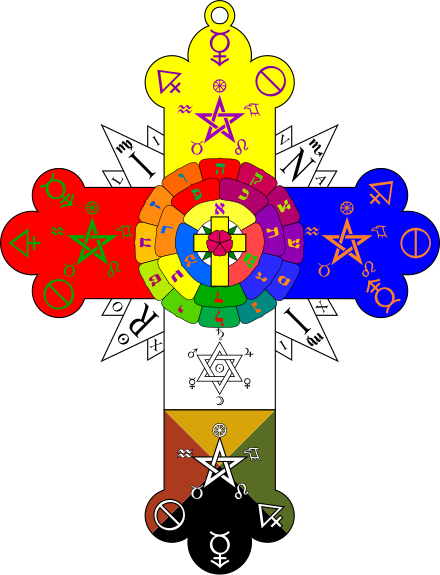/book-of-magic--tarot-cards-on-fortune-teller-desk-table--future-reading-concept--930385224-5ac915baff1b780037240c7d.jpg)
/book-of-magic--tarot-cards-on-fortune-teller-desk-table--future-reading-concept--930385224-5ac915baff1b780037240c7d.jpg)

The Golden Dawn
The Hermetic Order of the Golden Dawn has earned a place in the history of Western esoteric thought. The Golden Dawn reshaped preset conceptions of magic. While the practice of other occult arts was a matter for the history books, the practice of ritual magick had typically remained obscure and individualized. A link between masonry and theurgy had existed, but 19th-century occultists were apt to view the practice as a private undertaking.
The Golden Dawn discussed in their educational essays, a move toward creating new social and institutional sites for magick by using an esoteric order as a vehicle for teaching. Being a major source of such esoteric philosophy sources and magickal concepts, the Golden Dawn exerted a a great deal of influence on 20th-century esoteric trends.
From 1888 to 1903, the “classical” Hermetic Order of the Golden Dawn was a major player in Britain, where the occult was concerned. Despite its later failures, it managed to create a social platform for the study and practice of ritual magic, operating four different temples in England and one in Paris. Some of the better known members were William Butler Yeats, Florence Farr, Maud Gonne, and, of course, Aleister Crowley.
The Order was founded by a group of Freemasons and Theosophists. The key founders were William Wynn Westcott, Samuel Liddell “MacGregor” Mathers, and William Robert Woodman. The Golden Dawn attracted many of its earliest members from Rosicrucian- and Hermetic-oriented parts of occult society.
Source
Asprem, E. (2016). The Golden Dawn and the O.T.O. In G. A. Magee (Ed.), The Cambridge Handbook of Western Mysticism and Esotericism (pp. 272–283). chapter, Cambridge: Cambridge University Press. http://doi.org/10.1017/CBO9781139027649.024